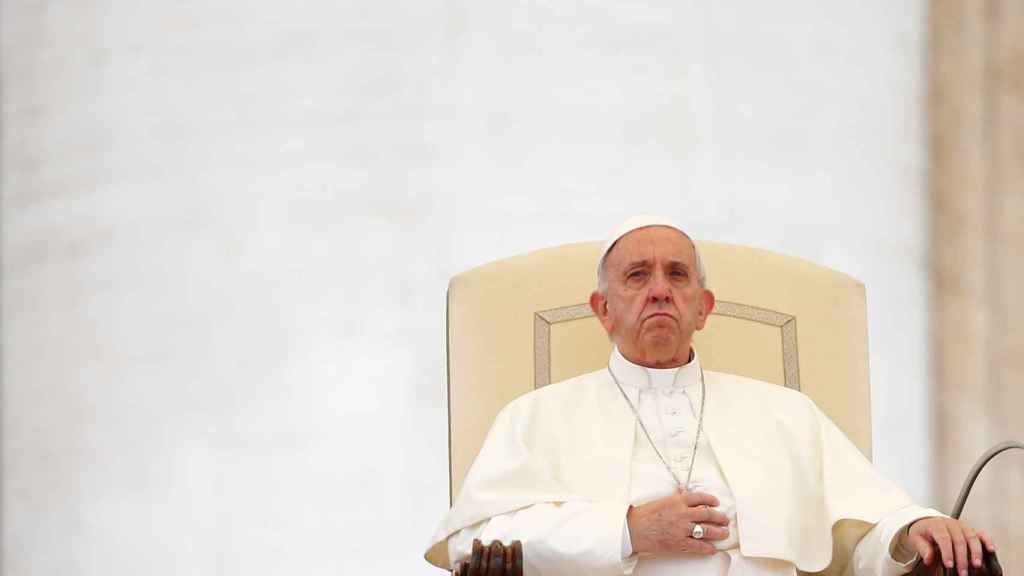The Authentic Magisterium Is Truth, Not a Trademark
by Christopher A. Ferrara
December 5, 2017
As the explosive new book on Pope Francis, The Dictator Pope, makes its appearance as a best seller in both English and Italian editions, the Church is confronted with an astonishing dictatorial abuse of the Magisterium itself by Francis and what some have called his “magic circle” of handpicked ultra-progressivists.
In yesterday’s column, I noted that Francis has published in the Acta Apostolicae Sedis (AAS), his approval of the guidelines for implementation of Amoris Laetitia by the bishops of Buenos Aires (along with the guidelines themselves), accompanied by a papal rescript elevating the formerly “private” letter to the status of an apostolic letter and declaring that it is part of the “authentic Magisterium.”
This move is a blatant attempt to halt all criticism of AL (including the seemingly imminent “formal correction” by Cardinals Burke and Brandmüller) by cloaking the letter and the guidelines in the language of Canon 752 of the 1984 Code of Canon Law, which (citing Vatican II) provides “[a]lthough not an assent of faith, a religious submission of the intellect and will must be given to a doctrine which the Supreme Pontiff or the college of bishops declares concerning faith or morals when they exercise the authentic magisterium, even if they do not intend to proclaim it by definitive act; therefore, the Christian faithful are to take care to avoid those things which do not agree with it.”
The ploy cannot succeed. Francis’ novelty cannot be part of the “authentic Magisterium” because it transgresses the fundamental divine limitation on papal doctrinal authority as enunciated by the First Vatican Council:
“For the Holy Spirit was promised to the successors of Peter not so that they might, by his revelation, make known some new doctrine, but that, by his assistance, they might religiously guard and faithfully expound the revelation or deposit of faith transmitted by the apostles.”
Francis is here claiming to announce new doctrine, overturning the teaching of his own predecessor in keeping with all of Tradition. As the Congregation for the Doctrine of the Faith under John Paul II declared in 1998, the absolution and admission to Holy Communion of public adulterers in “second marriages,” without a commitment to cease adulterous sexual relations, “is intrinsically impossible” and “The conscience of the individual is bound to this norm without exception.” That is because this is a norm “over which the Church has no discretionary authority. The indissoluble nature of marriage… goes back to Christ Himself and is thus identified as a norm of divine law,” and the admission of public adulterers to Holy Communion would violate that divine moral norm.
Yet Pope Francis purports to introduce exceptions to a norm rooted in divine law for the first time in 2,000 years, and he does so by means of patent moral nonsense. Recall the pertinent section of the Buenos Aires guidelines:
“When the concrete circumstances of a couple make it feasible, especially when both are Christians with a journey of faith, one may propose that they commit to living in continence.”…“In other more complex circumstances, and when it is not possible to obtain a declaration of nullity, the aforementioned option may not, in fact, be viable. Nonetheless, it is equally possible to undertake a journey of discernment…. [I]f one arrives at the recognition that, in a concrete case, there are limitations that diminish responsibility and culpability (cf. 301-302), particularly when a person judges that he would fall into a subsequent fault by damaging the children of the new union, Amoris Laetitia opens up the possibility of access to the Sacraments of Reconciliation and the Eucharist (cf. notes 336 and 351).”
First of all, the exceptionless moral norm requiring continence for those involved in “second marriages” is not a mere proposal, but a divinely imposed mandate: Thou Shalt Not Commit Adultery. Adultery is never permissible under any circumstances, and those who purport to divorce their spouses and marry another are, as Our Lord Himself declared, adulterers without exception.
Secondly, “more complex circumstances” cannot be said to render “not viable” obedience to divine law. That claim is nothing but situation ethics, which the Church cannot possibly accept.
Thirdly, “more complex circumstances” is an empty phrase capable of whatever meaning one wishes to impart to it. What constitutes “complex” as opposed to “simple” circumstances? And who determines this? The authentic Magisterium cannot impose such a vague notion as a moral principle.
Fourthly, “journey of discernment” is a mere slogan just as meaningless as “more complex circumstances.” Discernment by whom? A priest, a bishop, the adulterer himself? Discernment of what, exactly? An ill-defined phrase capable of innumerable interpretations cannot be a binding moral principle.
In sum, “authentic Magisterium” stands for the truth of Christ and what the Church has always taught in His name and by His authority. It is not a trademark that Pope Francis can blithely affix to his absurd novelties in order to declare them beyond criticism or discussion.
Never in the entire history of the Church has any Pope dared to abuse the Magisterium in this manner. There have been other papal tyrants in Church history, but never has there been a Pope who tried to tyrannize Catholic doctrine itself by demanding universal submission to his own errant ideas.
May Our Lady of Fatima intervene soon to rescue the Church from the astounding disaster of this pontificate.
